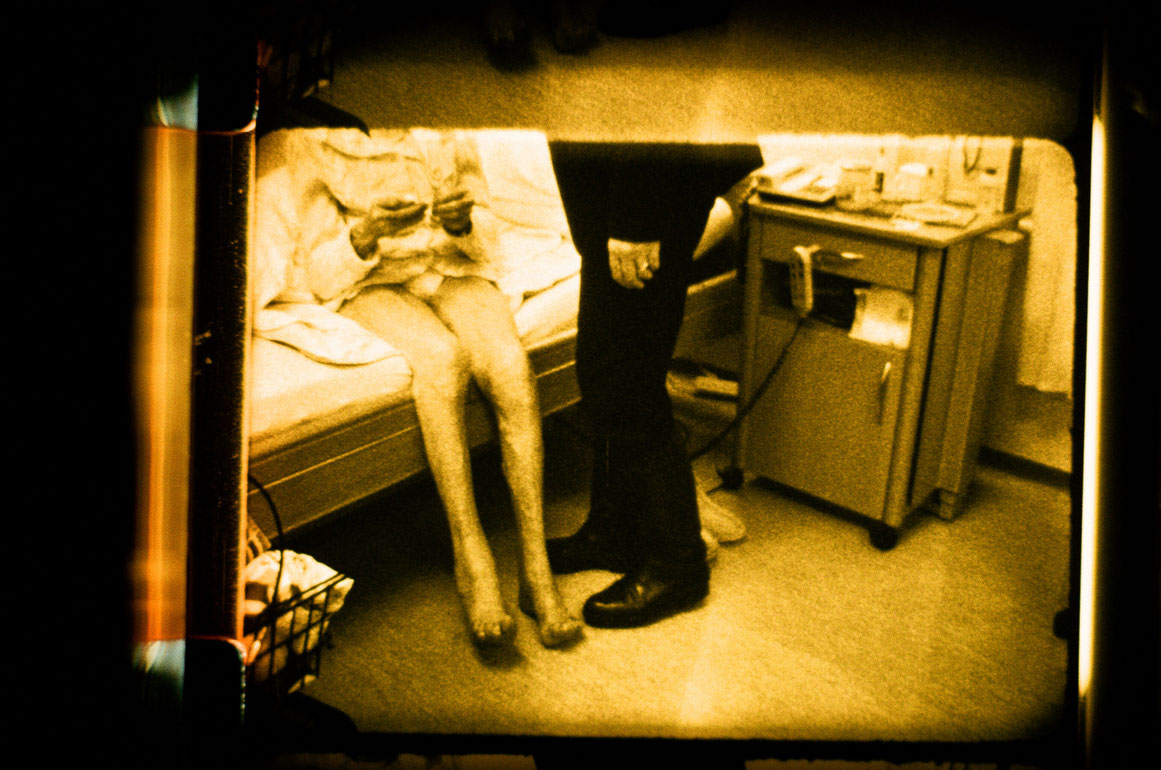Me too, too, me too
Past the newsstand, the hairdressers, by the dry cleaners. A door opens into a sick room. A very old woman lies there in her bed. Her body is lusterless and haggard. But her gaze is firm, withstanding that of the camera.
The three-minute film, a snapshot of an encounter, is based on concrete experience. In an accompanying note, the filmmaker writes: “For years, weeks, I have had to visit my mother and am regularly overwhelmed by the purpose of life, compassion, and anticipation of my own passing.” This experience is condensed in the film. From the anonymous urban space, one arrives in a room and while passersby and vehicles fleetingly animate the picture outside, the movement inside remains limited to a manageable space and minimal gestures. Time seems to have nearly stood still, has moved towards the past, which is visibly eternalized in family photos.
The steady flickering of the delicately yellowed 16mm recording sets up our perception of the film as Memento mori. But in contrast to the artist’s hitherto films, which have been silent, for the first time, sound also plays a crucial role. Already the black film before the first, shaky take is affected by a hoarse woman’s voice from off camera. A litany begins with the words that provide the title, “Me too, too, me too”. We cannot access some of what she says, it remains incomprehensible. Other parts that seem understandable instantly set off a chain of associations: crying, suffersuffersuffer. Demons. Go away, away, tightness, taken, come along. The speaker’s agitation increases, her rant flows into an all-penetrating cry—awareness: me too, also, all of us.
(Isabella Reicher)
Translation: Lisa Rosenblatt
For years, I have had to visit my mother in hospital, and I am regularly overwhelmed by the purpose of life, compassion, and an anticipation of my own passing.
(Friedl vom Gröller)

